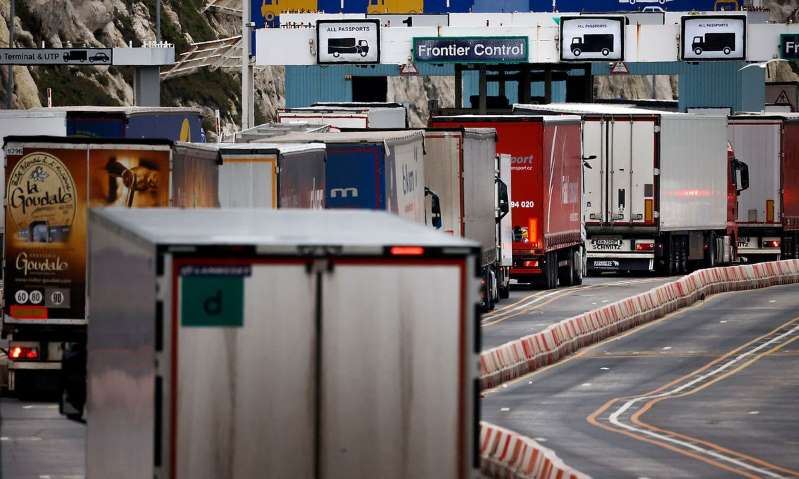Despite the Brexit trade agreement, German industry is currently seeing significant disruptions in the transport of goods to and from Great Britain. “We expect the bottlenecks to last at least until half of the year,” said the chief executive of the Federation of German Industries (BDI), Joachim Lang.
“This is dramatically putting the pan-European supply chains to the acid test. The preparations by the government in London and in many British companies have not been sufficient to cushion the additional bureaucracy and unnecessary border formalities.”
Although companies had prepared well for the new trade barriers last year despite Corona, the disruptions hit many companies with great severity, said Lang. “At the moment, trade has initially shrunk. As soon as the trading volume increases, we are facing a massive stress test.”
Great Britain left the EU internal market and the customs union at the beginning of the year. The trade agreement negotiated with the EU is intended to avoid a hard break. The most important point is that no customs duties and quantity restrictions will apply in the trade in goods in the future.
Constructive cooperation is essential
Great Britain left the EU at the end of January 2020. Lang said on the anniversary that the return to constructive cooperation between the EU and the UK is essential for the economy. “It is a significant turning point that the United Kingdom has now finally and practically left the EU internal market and the customs union. This entails far-reaching restrictions on the cross-border movement of goods and significantly more customs formalities.”
With a view to fighting the pandemic, Lang warned of a dispute over the distribution of corona vaccines. This is absolutely counterproductive. Europe is in the same boat. The primary goal of politics must be to avoid delivery delays in the healthcare system, Lang demanded. “Under no circumstances should bottlenecks in customs administration and logistics lead to supply difficulties in patient care. Otherwise the consequences of Brexit threaten to make coping with the pandemic difficult across Europe in the short term.”

